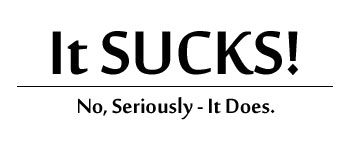There is something to be said about throwing out "work in progress" versions of chapters for your book online. Last week, I published a chapter of my book live and within a week I heard from more than individuals who had important but varied feedback about that chapter. All their feedback basically boiled down to this: 'Pops, the chapter sucks! Take it down and rewrite it. Now!'.

The three primary reason why most people disliked the chapter was because:
- The chapter was written with a timeline in mind and that showed in the writing.
- I did not have a lot of fun writing the chapter and that showed in the writing too.
- The third feedback was a rather long feedback which came down the fact that writing for a book is very different from writing for a blog post. When you are writing a blog post you have an audience that reads you and is aware of the context you write in. When you write for a book you need to tell a story, set the context and help your reader understand the context. If you don't do that you have lost your readers.
I continue to be amazed at how easily and clearly people can see through the work that is done halfheartedly without a lot of passion or work that is just done to meet a timeline.
So as of now, I am taking the chapter down and giving you a big fat sorry for wasting your time by asking you to read a chapter that was half baked; something that even I did not enjoy writing in the first place.
Going forward, if a chapter goes out, you can be rest assured that I have given it my best shot, have enjoyed writing it and that there is a good chance that you might have a concrete take-away or something to learn from the chapter.
And as far as this post is concerned, what you can take away from it is simple.
Whether it is a new feature, a new software or a new chapter of your book, the same rule applies when you are about to publish something online.
Did you enjoy writing it?
If you did not enjoy writing it, they will not be able to stand it when they download it.
Do not publish it live.
Let it soak. Work on it. Make it better.
Bring it to a level where you can get at least yourself to genuinely like it.
I wish you good luck.







Comments are closed.